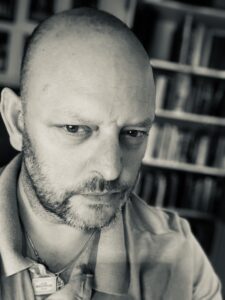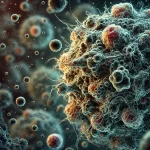We’re nothing but a footnote in the grand scale of evolution. As Jonathon Kennedy points out in his book Pathogenesis, Homo sapiens have existed for about 300,000 years, while Earth has been around for approximately 4.5 billion years. To put this into perspective, if we compressed the history of the world into a single Gregorian calendar year, humans would only appear around thirty minutes before midnight on New Year’s Eve. In contrast, germs have been around since early spring.
When we talk about being the dominant species on this planet, we simply are not. Consider the Ancient Egyptians, Greeks, and the Roman Empire—civilisations that reached their peak and then faded away. Are we, right now, on the brink of our own era’s demise?
Since the Industrial Revolution, humans have made incredible advances in technology, agriculture, healthcare, and understanding the human condition. But we share this planet with a far more dominant species: bacteria. Bacteria have been here for billions of years before us and continue to evolve. They live miles below the ground, on the surface, and miles above it. Despite their tiny size, the total mass of bacteria in the world is thirty-five times more than the weight of all humans alive today. Try and think about that for a couple of minutes.
Kennedy’s book is an unputdownable read, filled with terrifying yet fascinating insights. It reinforces the Darwinian principle that the more humans learn about the world, the more insignificant we feel. This concept resonates deeply when we consider the vastness of the universe and the ancient, resilient life forms like bacteria that have thrived for billions of years.
Despite mounting scientific evidence, we persist in our anthropocentric view that we are the dominant species with dominion over nature. This perspective is not only shortsighted but also perilous. Our technological advancements and intellectual achievements often lead us to believe we are invincible. We build skyscrapers, explore space, and manipulate the genetic code, all under the illusion of control and superiority.
However, Kennedy’s narrative shatters this illusion. By delving into the history and evolution of pathogens, he exposes the fragility of human dominance. Bacteria and viruses have been shaping life on Earth long before humans appeared, influencing everything from the evolution of species to the outcomes of historical events. These microorganisms are masters of adaptation, capable of evolving at a pace that far exceeds our ability to develop new defences.
The book’s insights force us to confront uncomfortable truths about our place in the natural world. Our existence is precarious, balanced on the edge of biological interactions that we are only beginning to understand. The ongoing battle with antimicrobial resistance (AMR) exemplifies this precariousness. AMR threatens to render our most powerful medical tools ineffective, potentially plunging us back into an era where minor infections are once again deadly.
Kennedy’s exploration of these themes is a wake-up call. It urges us to abandon our hubris and recognise the interdependence of all life forms. We are not separate from nature but a part of it, subject to the same ecological and evolutionary pressures as any other species. This realisation should inspire a more humble and respectful approach to our relationship with the environment.
In our relatively short span of human existence, our ingenuity has been astonishing—from the early adoption of organised agrarian societies to the explosive growth during the Industrial Revolution. But this growth has paralleled the rise of bacteria and viruses. The COVID-19 pandemic showed that we are not invincible. What further complicates this is Antimicrobial Resistance (AMR), a growing global health threat. AMR occurs when microorganisms, especially bacteria, become resistant to antibiotics, making infections harder to treat. Factors driving AMR include the overuse and misuse of antibiotics in healthcare and agriculture, inadequate infection control, and the slow development of new antibiotics.
Bacteria develop resistance through genetic mutations and horizontal gene transfer, sometimes forming biofilms that protect them from antibiotics. This resistance leads to increased mortality, longer illness durations, higher medical costs, and greater risks during surgeries and medical procedures. At some point, bacteria might prevail.
In H.G. Wells’ War of the Worlds, the Martians, despite their advanced technology, are ultimately defeated by something they never anticipated: Earth’s bacteria. The Martians, with no immunity to the microorganisms that humans coexist with, succumb to bacterial infections. We have to remember that the book Wells wrote was first published in 1898. What an incredible insight.
Our ecosystems are a delicate balance that we can’t ignore. We must collaborate globally to expand our knowledge and tackle these challenges. However, as the world teeters on the edge of the Thucydides Trap, it’s hard not to think that we might be our own undoing. In the end, bacteria might just outlast us, returning the world to its natural preset.













